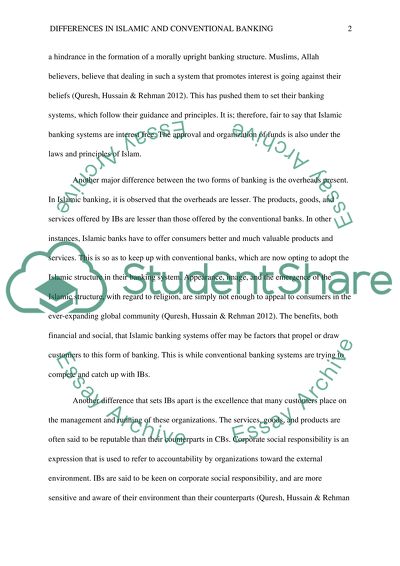Differences between Islamic and Conventional Banking Essay. Retrieved from https://studentshare.org/finance-accounting/1477522-differences-between-islamic-and-conventional-banking
Differences Between Islamic and Conventional Banking Essay. https://studentshare.org/finance-accounting/1477522-differences-between-islamic-and-conventional-banking.


